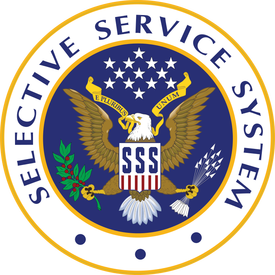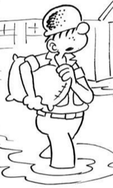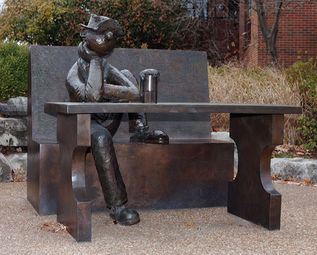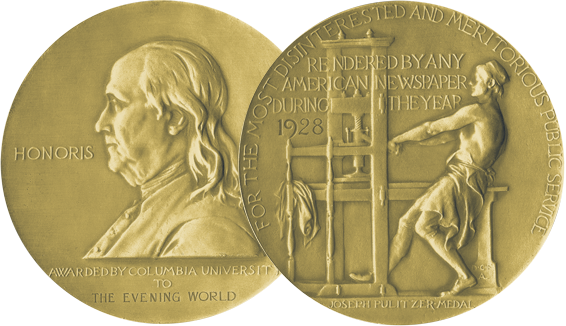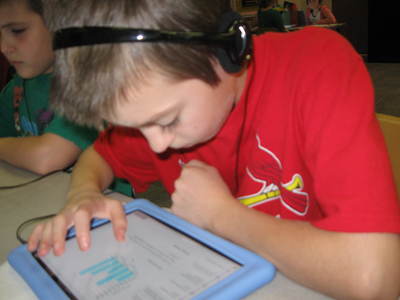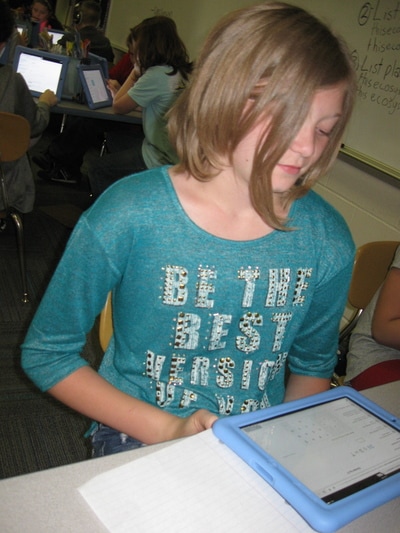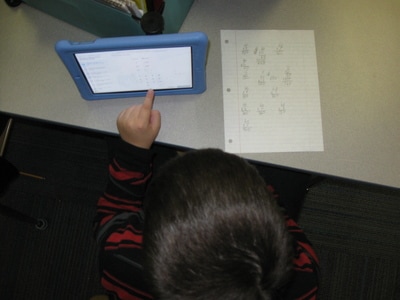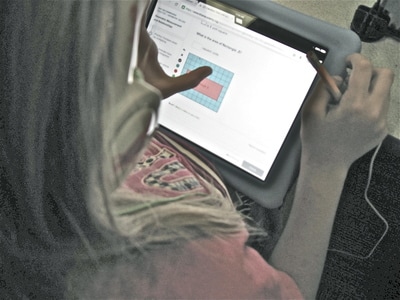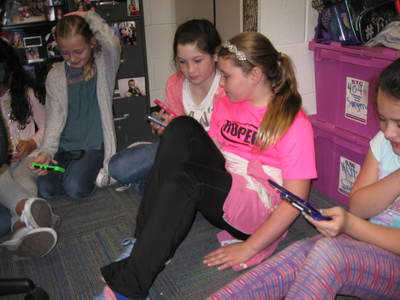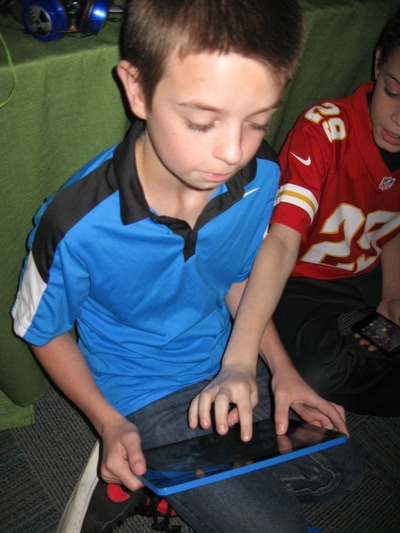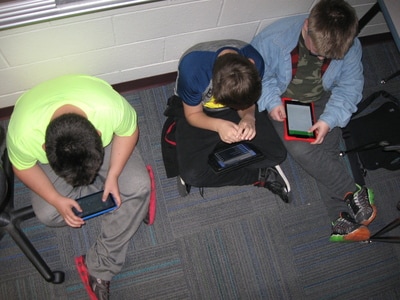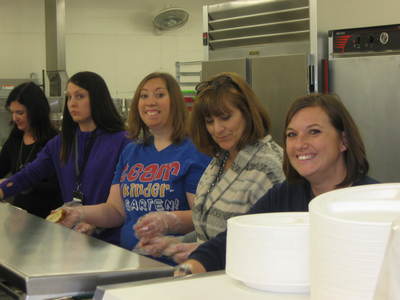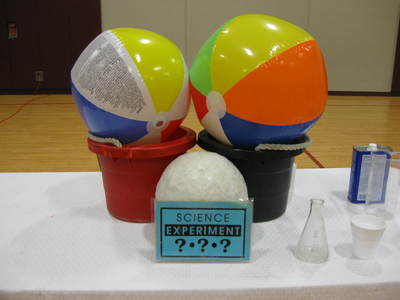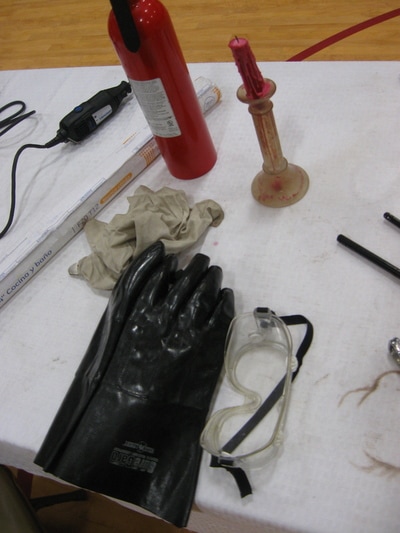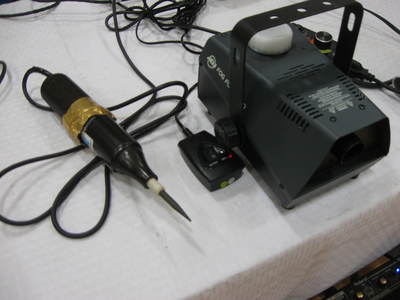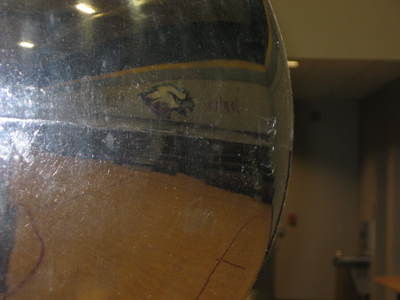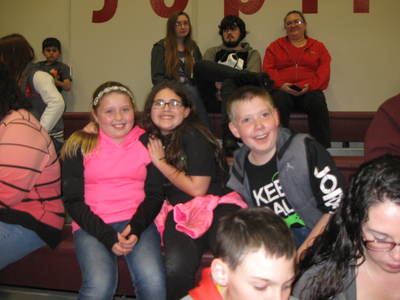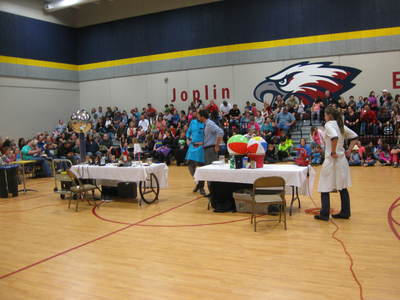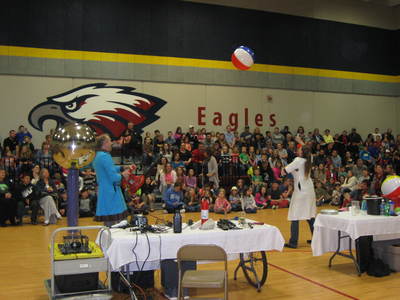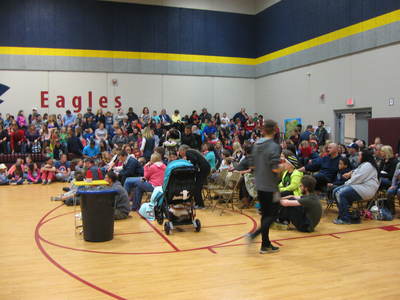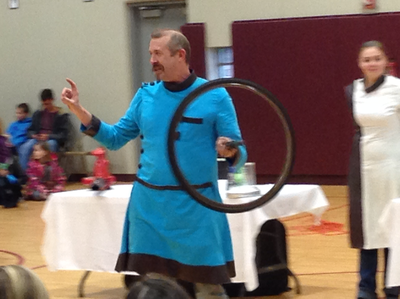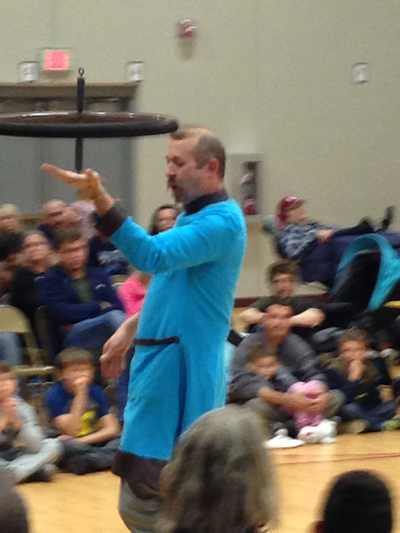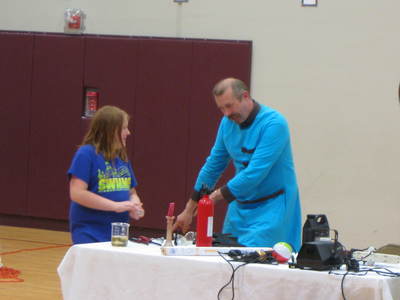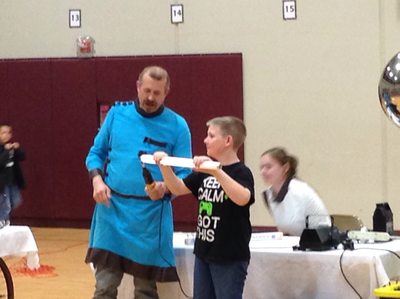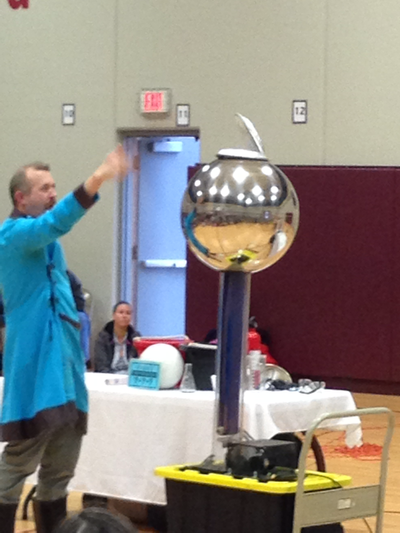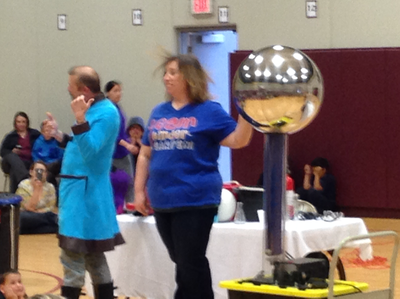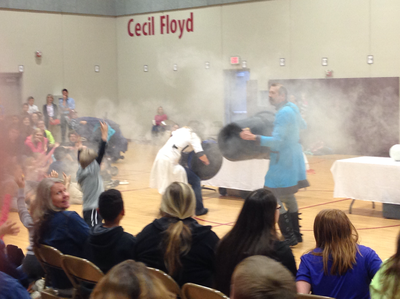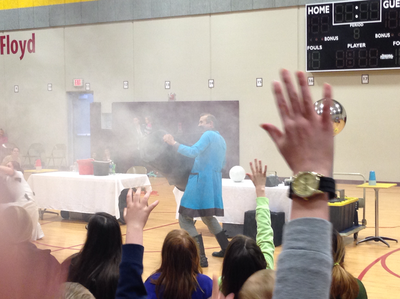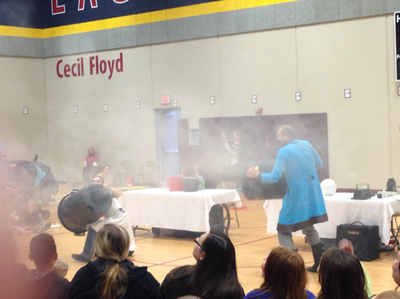|
Read the sentence below. Do you see any problems? when i be 18 i will register to vote francisco declared Do not rewrite the sentence. In fact, don't even fix the sentence. Instead, on your paper, tell the writer how to correct three things.
0 Comments
I have known parents who write their children's papers, do their projects, tell them how to think, and hover over their children's lives to make sure they never stumble. When these kids trip, they don't know how to pick themselves up, dust themselves off, and move on. They do not know how to make choices, learn from mistakes, or handle conflict on their own. The delicate balance of leading children and allowing them to walk forward alone - they must have the opportunity to navigate through life's twists and turns. We can't let them go too far off where they will get injured, but an occasional fall or branch in the face can be good for them! 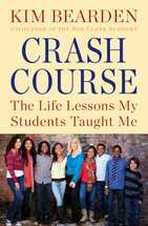
It seems to be against the nature of many teachers - to allow a child to make mistakes - and it seems to be against the nature of loving parents - to allow a child to stumble - but I must agree with Mrs. Bearden in this chapter of Crash Course. Children (and older children who may not want to be called children any more) need to fall and pick themselves back up.
I'm not saying we shouldn't guard our children against the evils of life, but I do believe we do well if we help them deal with the evils of life rather than remain naïve and then be smacked in the face with reality later. What's the magic age at which we discuss particular issues? I guess that's up to you. Usually, they will let you know through actions and speech when you're going to have to address things. Just don't wait until it's too late. But this is not just about the facts of life. Bearden wrote that there is a delicate balance of leading children and allowing them to walk forward alone. It's that juggling act that teachers and parents perform. Our nature is to protect our brood, but we must also understand that feeling pain is one way we can be sure we're still alive. (Why can't I get that picture of a dad spanking his son out of my head? "I'm doin' this because I love you!" he says.) The same must be true of learning new things. When students come to the fourth grade, they seem to only want to do the things they already know. The bottom line is: that ain't learnin'! But they don't understand that. They only want to do the comfortable things. The easy things. They don't get that doing the hard things is what makes things easy. John Kennedy said it:
"...not be they are easy, but because they are hard..."
"...because that goal will serve to organize and measure the best of our energies and skills..." Students, we do not come to school five days a week to practice what you learned in the second grade. How boring that would be! We come to school to learn new things. To challenge ourselves. To tackle the unexplainable. To wrestle with difficult concepts. To overcome obstacles. To make ourselves better for the benefit of others. So we press forward...and it is out of love that I will allow you to stumble.
The Selective Service
Camp Crowder in Pop Culture
 Now, think of a memorable location with which you have experience. Make up a couple of characters to live in or frequent that location. Can you tell their story in a three-panel comic (It doesn't have to be funny.)? Take care to put your panels into chronological order. We often show respect to our veterans on their holiday in September, but how about the rest of the year. Whether stationed stateside or overseas, veterans often hearken to the times when they shared when they served their country. Today is the anniversary of the birth of Joseph Pulitzer. Research Pulitzer and record your findings on your Happy Birthday Missouri sheet.
Yellow Journalism/Fake NewsThe newer term is fake news, but it has been around for years. Joseph Pulitzer practically invented fake news in the modern age. At the turn of the 20th Century, it was called yellow journalism. To sell more papers, both Pulitzer and Hearst began to write shocking stories, gory headlines, and use lots of photographs and cartoons to attract readers—a journalism style now known as “yellow journalism.” The start of the Spanish-American War in 1898 intensified the rivalry. After several years of trying to outdo Hearst, Pulitzer finally realized his folly and again tried to report only the facts. In fiction, these types of sensational stories might be called tall tales. Have you ever wondered where the original tall tales came from? Were they based on real people who did real things? Read the tall tales below, and discuss what might have really happened. Now, think of a mundane event - maybe something that happened to you that was not exciting at all. Now stretch that event into something unbelievable. In other words, make it into a tall tale. Might you be able to recreate a photograph to go along with your story? Perhaps we can put our stories into a "newspaper" format for display. Is this what fake news websites and certain members of the media try to do when they engage in yellow journalism? Why might people want to spread fake news? What is the effect of fake news on the populace? How can you tell the difference between fake and real news reports?
Hopefully there would never be a prize given to the best fake news article or broadcast, but we need to recognize the creativity of our classroom. Which of your classmates' tall tales are deserving of special recognition? Let's discuss the reasons why you think so.
A teacher from another school asked me why I don't use textbooks. I have never effectively used textbooks in my classroom, especially in the traditional sense. During my first year as a second grade teacher in Oklahoma City, I quickly discovered that the textbook approach does not work for me. I found it difficult to juggle the teacher's edition with all of its suggestions of warmups, assessments, differentiated worksheets, and enrichments. In fact, many of the suggested activities seemed disconnected from the main lesson. Often, most the same activities were a waste of time, primarily. So, I figured I could make a neat little list of reasons why I don't traditionally use textbooks in my classroom.
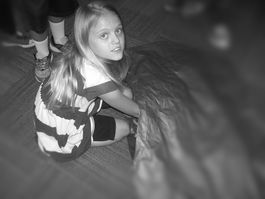 2. I am less creative when I use the textbook. I respect the mountains of research and effort that have been expended in order to produce the latest and greatest textbook package. "Expert" educational consultations are sought. Graphic design artists are recruited. Lawyers are retained. Writers and editors write and edit. And salespeople are dispatched into the field to show off all the bells and whistles. With all that goes into creating the shiniest product, the process seems to remove my own ability to be creative. If I use the textbook, I feel like I should be true to the intended processes and content included by the design team. Anything less would be disrespectful, right? Instead, just as I want my students to get their noses out of the book and to look at the world around them (Sometimes we even use a book to do so.), I need to get my own nose out of the teacher's edition. Imagine all the things I can discover about the members of my class when I am freed to roam among them more. 3. The textbook is one-size-fits-all. I've been on enough textbook selection committees, ironically enough, to understand that the publishers want to make as much money as they can on their product. They put a lot of work into arranging their books to make sure they take care of as many of their clients' preferences as possible. They make them pretty, and they fill them will all the "required" educational lingo of the day. As such, publishers want to get as much traction from a single product as they can. They want to sell their books to as many districts as they can. As unintended as it might be, publishers are forced into making their books "fit" for all states and all districts, resulting in a lot of fluff and unnecessary verbiage packed into the teacher's edition. If it is that thinly spread, might there be other sources that are just as effective or more so? 4. I don't want to follow a foreign script. I need to feel more ownership with my materials and lessons than a textbook allows me. Many educators - especially new teachers - like to have something in their hands to guide them through a lesson. Some would prefer to read a literal script from the teacher's edition. Perhaps they don't trust themselves to cover everything in the right way. Maybe they want to make sure they don't leave anything out. Whatever their reasoning, I need to have more eye contact with my students than I can have when my nose is in a book. At the same time, I like students to have eye contact with me. That human connection is important, but with a textbook in between us, there is a barrier to the relationship we so desperately need. 5. I would rather students interact with me - not the textbook. Not only do I expect to share eye contact with students in my class, but I also need to have conversations with them. We need to pause and talk things out. Together. I need more intimate contact than the textbook allows - not the clinical contact that a textbook so naturally encourages. Education is not all science - though publishers would love it if it was. In fact, that's how publishers and educational gurus approach their crafts, filling their books with if-then statements as if kids were computers to be programmed. If they respond in this way, then assign this page; if they respond that way, then skip to page such-and-such. As I contend that children are not computers, I have to believe in a more human approach. 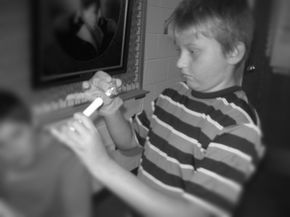 6. The textbook is not real life. A textbook takes students out of the real world and puts them into the school world - as if the two should be different. No, as much as some would like to believe it, when a kid comes to my class, she doesn't leave the real world behind. The problems from home are still there. In addition, I need to prepare my pupils to function in the real world and not just prepare them for tests at school. While publishers try to reflect cultural diversity, and while they fill their books with full-color photographs of people and places in the real world, textbooks probably do very little to make kids feel like those pictures portray the real world in which they live. Real life is three-dimensional. Reading a section and completing the questions at the end feel a lot like a school activity - something we do at school, in this place, and not something we will do again when the dismissal bell rings or after we move our tassels. 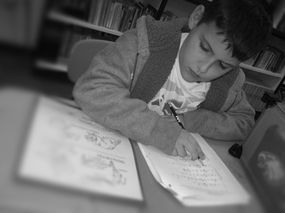 7. I like to make connections. Much has been written about 21st Century education. We hear a lot about how school needs to change to keep up with the needs of the new century. We are no longer in the Information Age; we find ourselves, now, in the Innovation Age. That's exciting. It also means students need to make connections like never before. When we cut our school day into neat little 20-minute segments and require specific blocks of time to be dedicated to a certain subject, we do a disservice to our society. That, again, is not how the real world works. I would not propose that publishers try to produce some multi-volumed book set that combines all areas of the curricula (Can you imagine what that would look like?), but I would propose that Math and Science no longer need to be divided into separate courses. History and writing no longer need to be separated, especially at the elementary level. There are certainly times that call for isolating skills, and I am an advocate for dissecting processes with students, but at the same time, my students must understand how individual lessons fit within the larger picture. It's important that we display the forest and the trees, and that is more easily accomplished when I create my own lessons. 8. Students get used to the routine. We talk about routines in education a lot. We consider routine to be very important for certain students. But at the same time, a rigid routine can be boring. Introduce a class discussion about personal needs. Read a few paragraphs about westward-bound pioneers. Answer some comprehension questions. A textbook lesson is more complicated than that, but you get the idea. If I work through every lesson using the same pattern - which is what textbooks typically do - and only change the content, not only do I divide school activities from the real world, but I have just written a recipe for boredom. This century's children hate being bored. They want action and activity. They want to explore and discover. They want to get their hands dirty. They want to be surprised. 9. Textbooks are expensive and heavy. Most people with children understand the second part of that statement. Those backpacks being dragged behind your son or daughter can weigh roughly the same as a smart car. If you pick up a box of books, you quickly get a lesson about density and weight. Paper comes from trees and trees are heavy. If I can creatively present the same concepts and information without the struggle that come with pulling out heavy materials, I will. The idea comes to mind that we must be paying by the pound for our textbooks. One book, for a single subject and for a single student, may cost nearly $100, while the same information and processes are available electronically for free. Understandably, I do not teach like everybody else. In fact, I love finding or developing my own materials and methods. But at the same time, I find it strange that we throw a couple hundred dollars into a kid's backpack and make her responsible for lugging it home and returning it the next day. Not to mention the physical consequences of carrying all of that weight. 10. The textbook removes my authority. No, I am not being paranoid. Just as sending a child to the office for discipline removes a bit of my authority (He couldn't handle me, so he pawned me off onto the principal.), so too is my academic authority diminished when I rely on a textbook. I want my kids to think; I should have the courage to step out of my box to think, as well. Just think of the authority that I become when I am the person presenting the content and strategies. If I use a textbook, am I the person teaching, or am I merely the catalyst through which the material is flowing, with the authority being the words in the textbook. I hope it doesn't sound haughty, selfish, or greedy to say that my students look up to me with more respect when they realize that all of that information is in me. When that recognition increases my standing just a smidgeon, students will be more likely to approach me for assistance in the future. That's a good thing. Please, by all means, do not take my reasons to mean that I condemn teachers who prefer the anchor of a teacher's edition. These are, by and large, my personal reasons, and should in no part imply that they should be adopted by every teacher. Above all, I realize that my teaching style is different from your own. My classroom chemistry is different, and the relationships I forge with students is different. Not only that, but everything is different within my own room from one year to the next. By staying away from a traditional textbook approach, I can more easily adapt my lessons when necessary to address those differences, as well, but it should in no way suggest that your situation will be the same. We are not cookies stamped by the same cutter. We are not robots programmed with the same code.
Since Adam Dovico, author, speaker, and clinical professor at Wake Forest University, created the original S.P.E.C.I.A.L. acronym used in the Greet One Another behavior, I sent these to him electronically. His response calls them "excellent; specific and relevant". Our own principal adds, "This is really good stuff!"
Before we get to the new school year, these will also become a part of a Summer Institute workshop for teachers (if there is enough interest). Since they are inspired by my visit to Atlanta a few years ago, in which I briefly met Mr. Dovico, as well as Kim Bearden and Ron Clark, I will add the breakdowns to the workshop which is entitled The Ron Clark Academy Experience. For more about each of these, please refer to some of my recent posts. Khan Academy is an extensive library of videos and lessons. This week, Khan introduced targeted practice for students, like ours, who have taken the NWEA test. We tried this out for the first time, on Monday, and some students quickly discovered that there were some concepts they have not mastered. Since the practice is customized for their needs as identified by the NWEA test, they are supposedly working at levels where they can learn new things and fill in any gaps along the way. Also, with access to wifi, students may use their usernames and passwords to access the system from home. The program allows students to watch videos for instruction when they are stuck. They are also allowed hints as they work toward Energy points (which allow them to cash in for new avatars and backgrounds). I'll monitor to see if they are making progress through the rest of the week. This is a beta program from Khan Academy that I hope is successful.
Our Math League qualifiers competed, Saturday, at the regional competition.  One of our fifth graders (DANIEL) returned with awards as follows: in the Sprint round, he came in second, and in the Team round, he came in third as a team of one. DANIEL is now qualified to move on to the state contest on May 6. Last year, DANIEL scored well enough, as a fourth grader, to advance to the national contest.
Are we really the product of our upbringing? Do we take on the traits of our environment? This is a human interest story that will really pluck your empathy strings and make you think about how you will respond the next time you have the opportunity to do the right thing. Take three minutes to watch this video Now for some questions:
Here are the last of our pictures from the science family event. We served hundreds of Cecil Floyd families and entertained them with the Hagermania science show. Having a packed gym with overload seating, kids sitting on the floor, and standing room only is a good problem to have. Please plan to attend more events like these in the future.
No foolin'! Here's a couple of snippets from Thursday's science show in the gym.
|
AnthemThe Hoggatteer Revolution
is an extensive, award-winning, inimitable, digital platform for Encouraging and Developing the Arts, Sciences, and honest Christianity in the beautiful, friendly LAND OF THE FREE AND THE HOME OF THE BRAVE This site is described as
"a fantastic site... chockablock full of interesting ideas, hilarious anecdotes, and useful resources." 
...to like, bookmark, pin,
tweet, and share about the site... and check in regularly for new material, posted often before DAWN'S EARLY LIGHT! History in ResidenceElementary Schools: Bring Mr. Hoggatt into your classroom for a week of engaging and rigorous history programming with your students. LEARN MORE BUILDING BETTER
|
